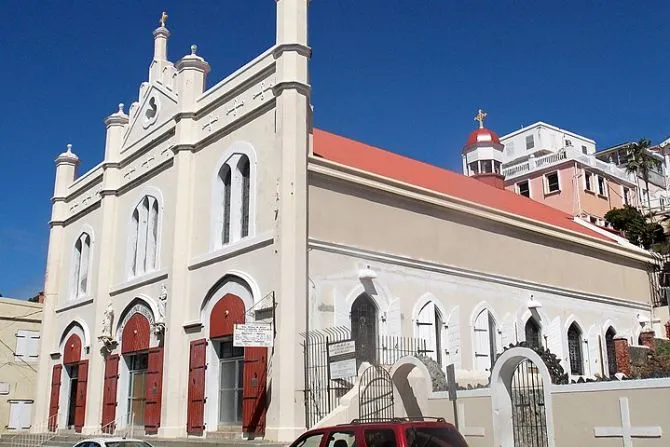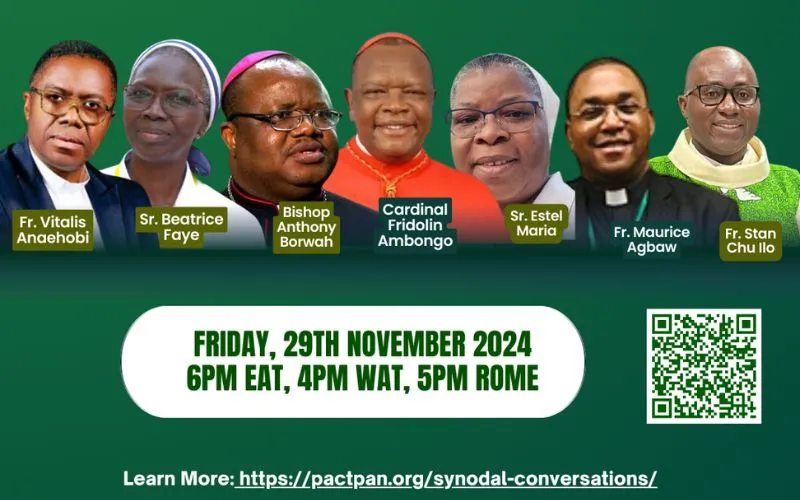“Many Africans born in this country have considered a vocation to the priesthood and religious life through this participation in the Eucharist,” Okereke added, “encouraging them to be part and parcel of what the Church is doing in this country.”
This year, ANEC was held on the campus of The Catholic University of America. Among the participants were 18 bishops, including Washington Cardinal Wilton Gregory, Apostolic Nuncio to the U.S. Cardinal-elect Christophe Pierre, and Bishop Jerome Feudjio of the U.S. Virgin Islands, the first African-born U.S. bishop.
According to Okereke, the African Catholic presence in the U.S. is “fast-growing,” and the congress is an effort by the bishops to invite that growing community into a deeper participation in the Church’s evangelistic mission.
“The African National Eucharistic Congress is a rich ground of evangelization,” Okereke said, adding that it is an “opportunity for African Catholics that are in the peripheries to be reached.”
The Church in the peripheries
(Story continues below)
Among the many pilgrims to this year’s congress was a 25-person delegation from the Diocese of St. Thomas. The group consisted of a mix of men and women representing the laity, clergy, and religious from the U.S. Virgin Islands.
Speaking to CNA on Friday, Feudjio said that “even though it’s a paradise for many Americans,” the U.S. Virgin Islands is “the poorest diocese in the United States.”
Despite this, Feudjio said that the faithful in his flock, along with people of African descent across the country and world, have a great deal to offer the Church’s mission of evangelization.
Besides helping to revive the faith of those in his diocese, Feudjio also wanted to show his fellow bishops that even the very poorest members of the Church “are really contributing to the life of the Church in America.”
According to Kwale, the congress is “already sparking hope for the spiritual livelihood of our diocese.”
Many fellow attendees have told him that “coming here has opened their hearts and their minds to the essential presence of the Eucharist in their lives,” he said.
Their experience at ANEC, Kwale said, proved to him and his compatriots “that indeed we can still have faith and trust and confidence in God, which most of our people have backed away from.”
“We are so happy that we had this delegation of 25 come here to witness this,” Kwale added. “If 25 people out of a million can see good, we hope that the others can see better from them.”
Back home, Kwale said the diocese is planning to spread its newly found eucharistic fire to each of its parishes and schools. The delegates who participated in ANEC will be working with the priests and parishes of the diocese to hold their own eucharistic revival events and rededicate their work to Christ in the Eucharist.








